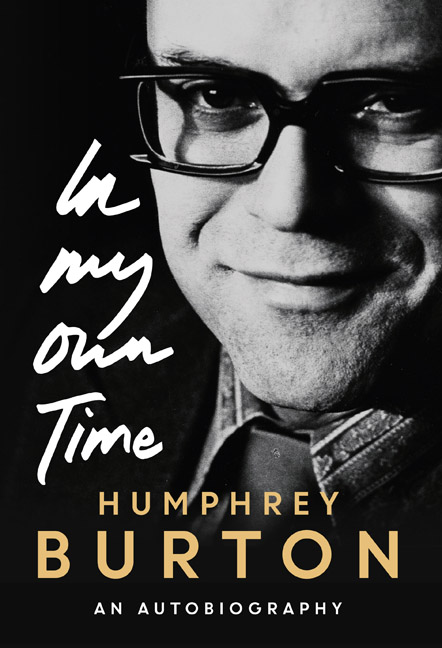7 - The BBC’s New Recruit
Published online by Cambridge University Press: 09 April 2021
Summary
IN 1955 RADIO was still very much the BBC's senior service. I had lived with it all my life: it was my Everyman, always at my side; I listened to Much Binding in the Marsh and Breakfast with Braden as faithfully as to a Prom or a Third Programme Henry Reed feature. I felt, too, that the announcers were my friends: Bruce Belfrage, Alvar Lidell, Stuart Hibberd – quite a litany. And now, in September 1955, I was to enter that broadcasting world – in a lowly capacity, to be sure: as a trainee studio manager. But I was not envious of the general trainees, as the high-flyers were discreetly identified; I found it genuinely exciting to pass through those heavy Broadcasting House doors into the foyer's lofty hallway and read the equally lofty inscription: Nation shall speak peace unto nation. My starting salary for speaking peace was £408 per annum – at the bottom of the D scale, just over £8 a week and no help with travel to work. My early ambition was to get myself promoted to B1Minus, the lowest level for production staff; I modestly hoped to be earning a thousand pounds a year by the time I was thirty. But promotion proved swifter than I had dared anticipate and I never stayed in the same grade for longer than two years.
The BBC landscape was certainly Orwellian. Senior staff at BH were known by their initials. In the Central Programmes group my boss, H.CP. Ops, was somebody called Brian George. He was remote: I don't think I met him more than twice. His deputies (A.H.CP.Ops) were ‘Pip’ Porter, in charge of studios, a genial white-haired gentleman who was very helpful to me later on, and an equally nice man called Tim Eckersley, who was in charge of recordings: his uncle had been a founding father of the Corporation who got into trouble before the war by marrying a Nazi sympathiser. I liked Tim because his good looks and cultivated voice reminded me of the excellent actor Robert Donat.
- Type
- Chapter
- Information
- Humphrey Burton In My Own TimeAn Autobiography, pp. 107 - 122Publisher: Boydell & BrewerPrint publication year: 2021

